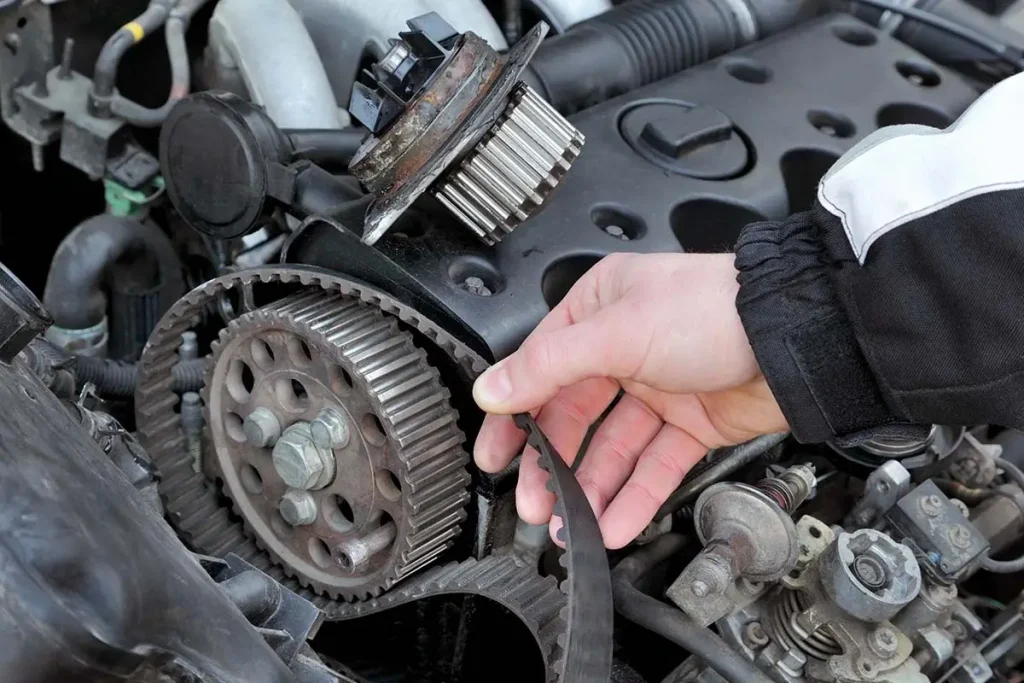Timing Belts
What Does a Timing Belt do?
The timing belt on your vehicle keeps the camshaft and crankshaft turning at the correct rate. The crankshaft moves pistons up for compression and exhaust cycles, while the pistons move down for power and intake cycles. Depending on your vehicle, the timing belt may also run the water pump, oil pump, and injection pump. The vehicle’s camshaft controls the opening and closing of the valves for intake and exhaust. The valves must open at the correct time to allow fuel to enter, then close properly to allow for compression. If the timing cycle is off at all, fuel may not enter the cylinder or may escape through an open exhaust valve. If your valves are not fully closed during the compression, the majority of an engine’s power will be lost.

When Should I Change My Timing Belt?
If your timing belt is faulty, you will notice a loss of power, loss of fuel economy, and/or misfiring and engine vibration. Timing belt noise used to be the main indicator of a potential problem, however, vehicle manufacturers are using belts that are less likely to be heard when it becomes loose or cracks. Timing belts can create a mild chatter sound but nothing in comparison to the sounds of a timing chain.
The answer lies in your car’s information book, the vehicle manufacturer will recommend the proper mileage based on your specific vehicle make and model. With the advancements in technology, it is typically around 100,000 miles, but you should check what the vehicle’s manufacturer recommends and stay within that mileage.
What Happens When a Timing Belt Breaks?
In the best-case scenario, if your timing belt breaks, your engine will simply stop running. In the worst case, the valves and pistons will interfere with each other causing valves to bend. This creates a very expensive repair.
Checking your timing belt is a job for a qualified technician at your local repair shop. In the majority of applications, your timing belt is protected under a cover that is not easy for a novice to remove. Access to your timing belt requires removing many engine components. If your timing belt shows any signs of cracks or worn-out teeth, it should be replaced as soon as possible. If the belt has begun to stretch or is coated in oil, replacing your belt is advisable before it becomes worse. The experienced technicians at KC Auto are here when you have questions regarding auto maintenance and timing belt noise or symptoms. If you are unsure about when to change your timing belt, our auto technicians have the answers you need.
